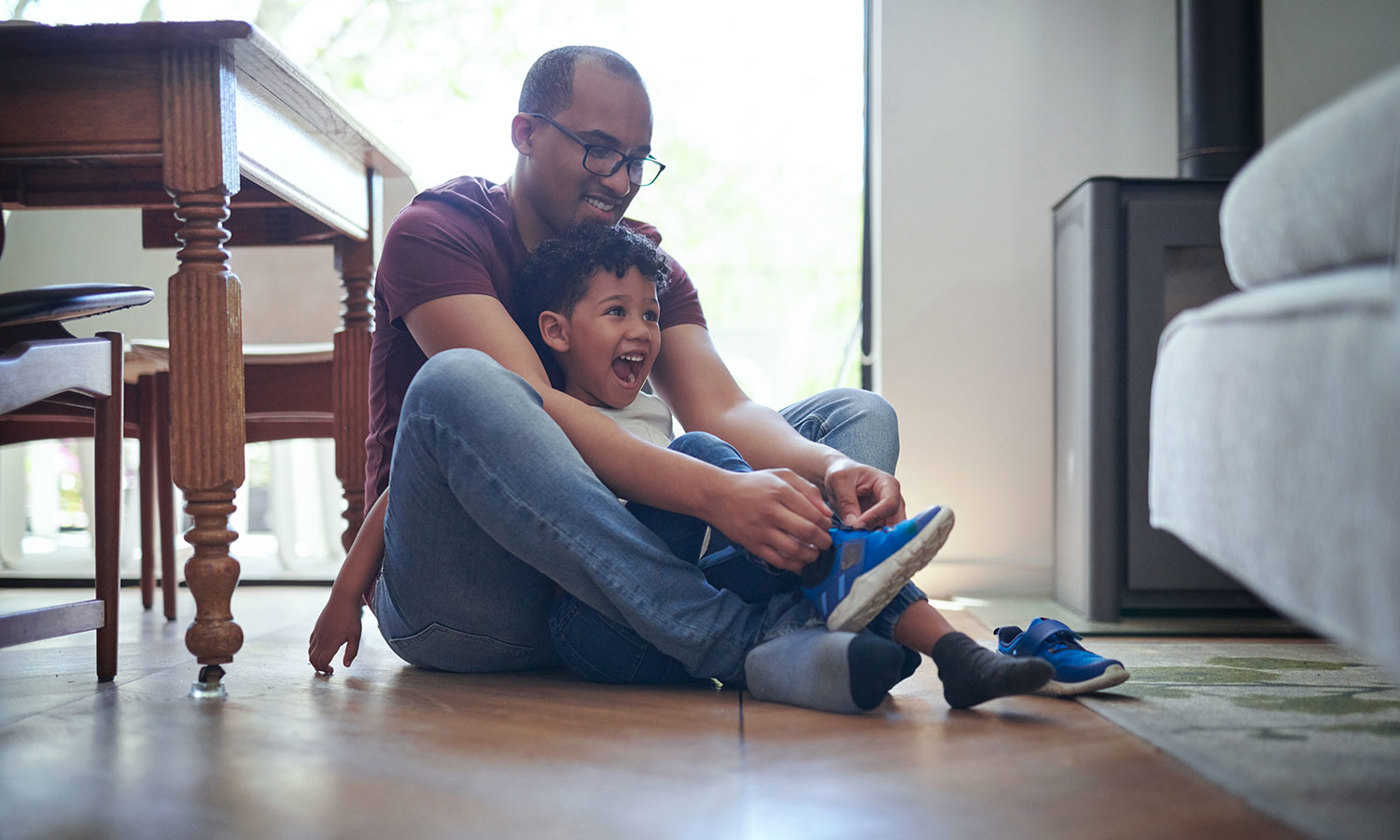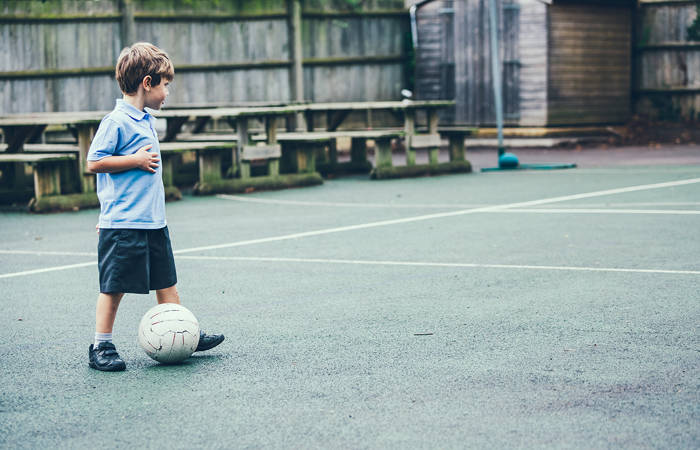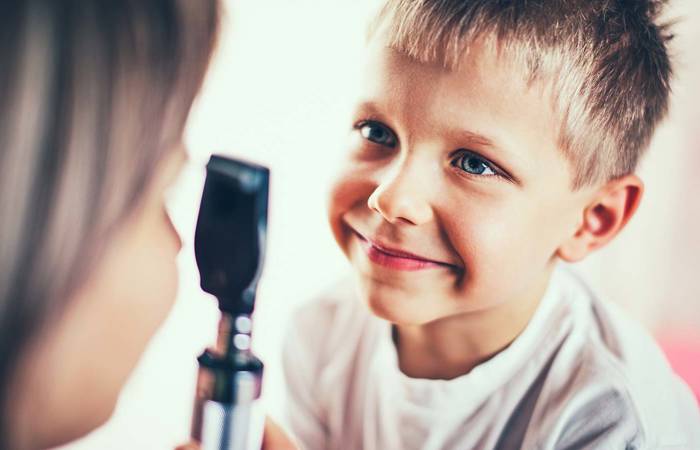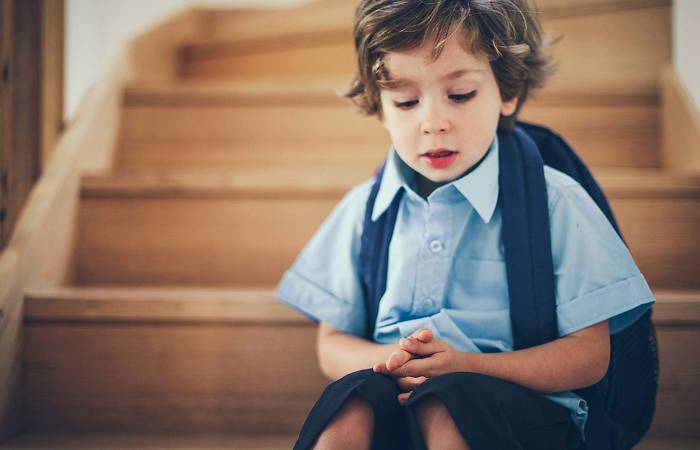Like what you see?
Sign up to receive more free parenting advice.
Thank you for subscribing to our newsletter!
Early Learning

Credit: iStock.com/Jay Yuno
As one of life’s big transitions, starting school can be an exciting and sometimes challenging time.
Being socially and emotionally ready for school is particularly important, because children who feel safe and secure will be ready to learn and make the most of their school experience.
But when it comes to the more physically focused skills like writing their names, tying their shoelaces, opening their lunchboxes or holding a pencil - how essential are these skills for our children and will it help if they have mastered them before they start school?
Dr Cathy McBryde is a lecturer in Occupational Therapy at the University of Queensland’s School of Health and Rehabilitation Sciences. Her PhD focused on the factors that influenced decision making when parents considered school readiness. She has also focused on the transition to school with many clients in her private practice.
School readiness difficult to define
Dr McBryde says, with such a large range of ages in the first year of school, it is impossible to have a check list of developmental skills needed by children to start school.
“Potentially at the beginning of a school year in January you can have a child who’s four and a half and you could also have a child who is six and a half, so that is a really broad range of different development and skill levels,” she says.
“Because there is often such a massive variation in normal development it really is impossible for every child in the first year of school to present with the same skills, which is why a school readiness checklist can be fraught.
“Because we can’t define what school readiness is, it is really hard to assess it, so the practical skills required by the child transitioning to school are really those skills that have been deemed important by the particular school the child will be attending.”
Instead of focussing on “school readiness” as a concept, Dr McBryde suggests parents focus on preparing their children for their continued education by having a conversation with the school about how to make this transition as easy as possible.
She suggests sharing as much information as possible about your child and learning as much as you can about the school’s expectations, learning philosophies and teaching programs.
When you are thinking about your child’s developmental skills, rather than view them as a predictor for whether or not your child is ready for, or will succeed in school, it is important to talk to their early learning teachers.
Because parents and teachers observe their children in such different environments their perceptions about each child and their predictions about how they will adjust to school can be so different.
“My research indicated that early childhood teacher’s perceptions of readiness were highly predictive of teacher perceptions of how children ended up coping in the school environment,” Dr McBryde says.
Ensure children feel loved and safe
In terms of arming your children with skills they need to start school, Dr McBryde says it was just as important to spend time with them and ensure they feel loved and safe.
“Being really present when you’re spending time together. Putting away the phone and all of those distractions we have now and enjoying that one-on-one time, is so important,” she says.
“It really helps to support children’s own social engagement when they know their parents enjoy spending that one-on-one time with them and this can lead to good self-regulation and social skills,” she says.
If parents have concerns or are feeling hesitant when it comes to their child starting school, this can be dependent on many contextual factors, so I would strongly encourage this to be a conversation with the child’s early childhood teacher and the local school.Dr Katey de Gioia
Stay up to date with the latest news and articles from First Five Years
Thank you for subscribing to our newsletter!
Talk to your child's early learning teachers
Goodstart Early Learning National Lead, Pedagogy and Practice, Dr Katey de Gioia agrees when it comes to assessing if your child is ready to transition to school, seeking information from their early childhood teacher is essential.
She says enrolling early and attending the school’s orientation and transition sessions are a great way to find out more information about the school’s expectations and can give you a clear idea of how you can support your child through the transition.
“If parents have concerns or are feeling hesitant when it comes to their child starting school, this can be dependent on many contextual factors, so I would strongly encourage this to be a conversation with the child’s early childhood teacher and the local school,” she says.
Dr De Gioia says that parents can start to prepare their children for school in a number of ways.
“Start a conversation about school with your child. You can walk or drive past the school and point it out, talk about children that you see in the school uniform. You can also have a look at the school website, at photos and activities that happen including assemblies, perhaps read the school newsletter, and browse photo galleries with your child, discussing the pictures.”
Encourage your child to ask questions
When it comes to practical tips, Dr De Gioia says most parents are doing more than they think they are.
“There are so many practical tips we can offer parents so they can support their children before they start school and many of these parents are often doing, but reading about different strategies can potentially alleviate worries they might have, as there are activities that are already happening in the home environment,” she says.
Dr De Gioia says parents can support children by modelling and encouraging their child to ask questions.
“Talk about things like how to ask if you need to go to the toilet while you’re in class, or by introducing them to scenarios they might encounter at school like what they would do if they fell over,” she says.
“Parents could also role play situations with their child. For example, the parent could act as a child who asks the teacher (the child) what to do if they can’t find a friend in the playground so they can work through the situation.
“It is important to remember that children pick up on how a parent feels or responds to a situation, so working in partnership with the early childhood teacher and school through ongoing communication and speaking positively about going to school will all assist in supporting your child in this next step in their life.”
Dr Katey de Gioia’s practical tips for supporting your child’s transition to school:
- Read with your child, share picture books, make up stories together and model the importance of reading.
- Use words in a variety of ways – play rhyming games when you each take turns to say a word – bat, sat, mat, cat.
- Provide opportunities for mark making. For example, have your child write a shopping list. Don’t worry if it looks like scribble, they are learning how to write words and will be able to tell you what it says if you ask them to share the list back. If they ask you to write the words for them, use upper and lower case as you would in a sentence.
- Share your interest in their name and how to write this – ask your early childhood teacher about how they are doing this and model practices at home.
- Provide opportunities to strengthen small finger muscles, particularly in preparation for writing by doing things like:
- placing pegs on a line.
- playdough, clay or making bread.
- if using a tablet, have a stylus available rather than finger swiping all the time, this also helps build up pencil grip.
- threading with small beads.
- drawing with a variety of implements – pencils, pens, markers, with sticks in the dirt, with fingers in sand
Explore shapes and numbers as part of your daily routines. For example:
- Cut an apple into quarters, count how many pieces of apple they are eating, have eaten, how many left.
- Cut a sandwich into triangles one day, rectangles the next and then squares.
- Identify shapes and numbers in your local environment – wheels on cars are circles, look for square windows, point out numbers on letter boxes as you go past.
- Play turn taking games that include numbers and shapes – snap, matching, Uno. Also great for developing understanding of winning and losing.
Develop self-help and responsibility skills. For example:
- Taking on and off shoes (Velcro is much easier for children to manage when they first start school and increases their independence).
- Taking on and off jumpers and jackets, doing up, undoing zippers.
- Opening lunch boxes (try them out in the shop, sometimes the most sort after ones are the most difficult to open).
- Practice eating and opening snacks including packets, containers, fruit – bananas, mandarins, eating a full apple, if this is what you are planning to send. Drink bottles and poppers are similar to lunch boxes and can require a lot of practice.
- Show your child where their name is written on their items so if they misplace something they can check if it belongs to them.
- Have children help pack and unpack their bag when they attend their early childhood centre.
- Practise going to the toilet in local shopping centres, or the park with your child so they are familiar with how to lock and unlock the toilet door. Check if the school has urinals and if this is the case, you may need to explain how these are used.
- Practise washing and drying hands.






